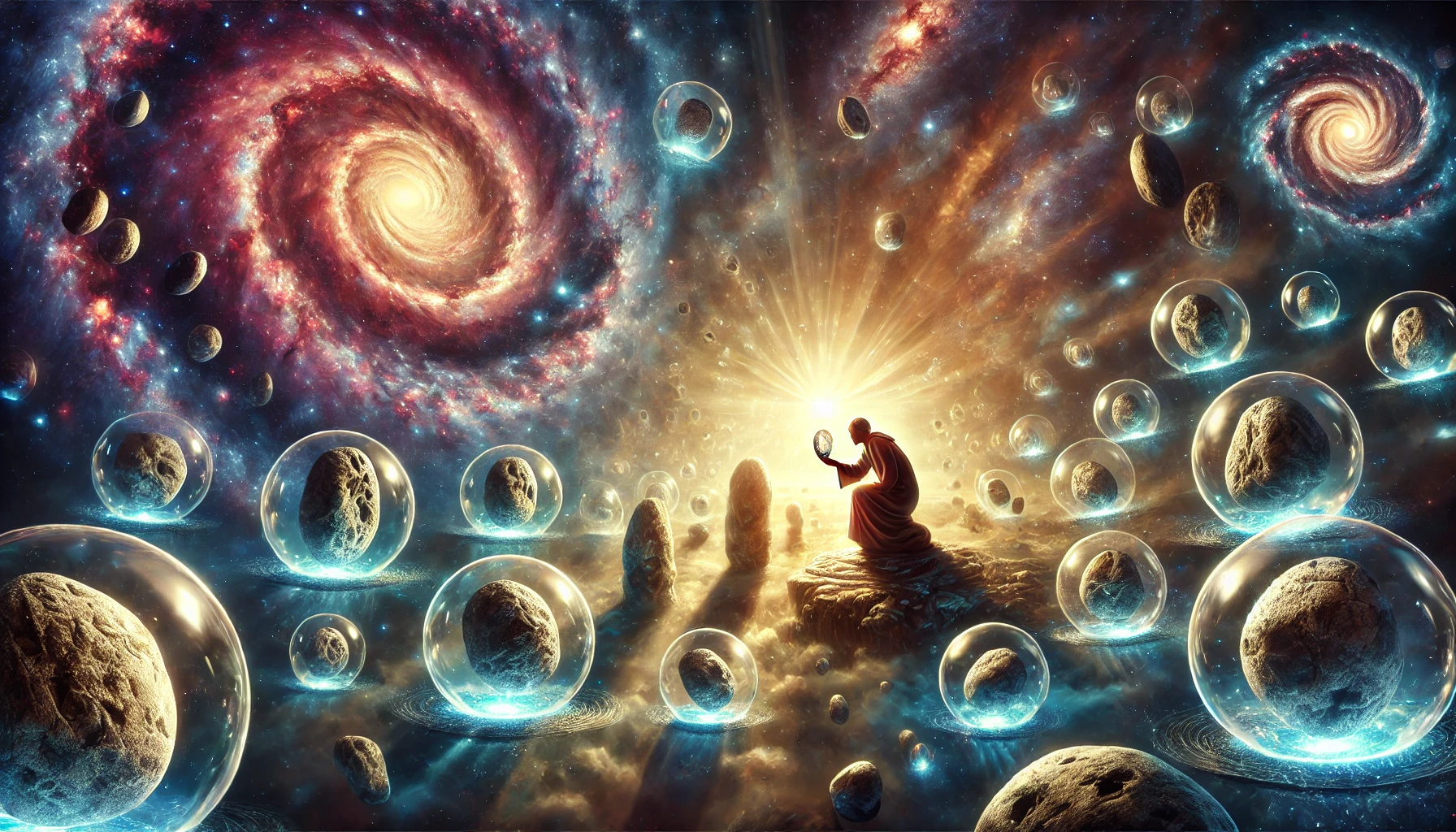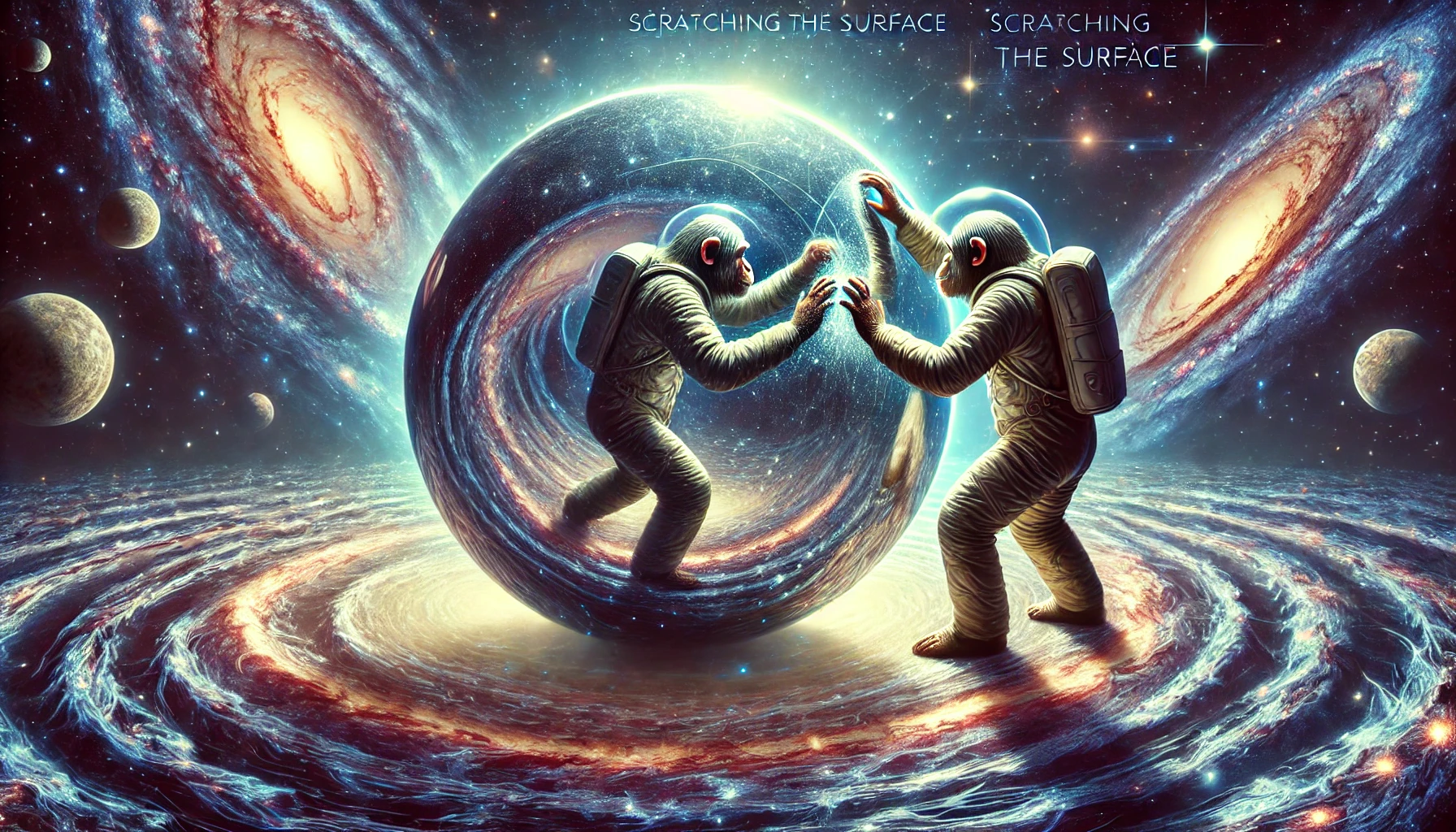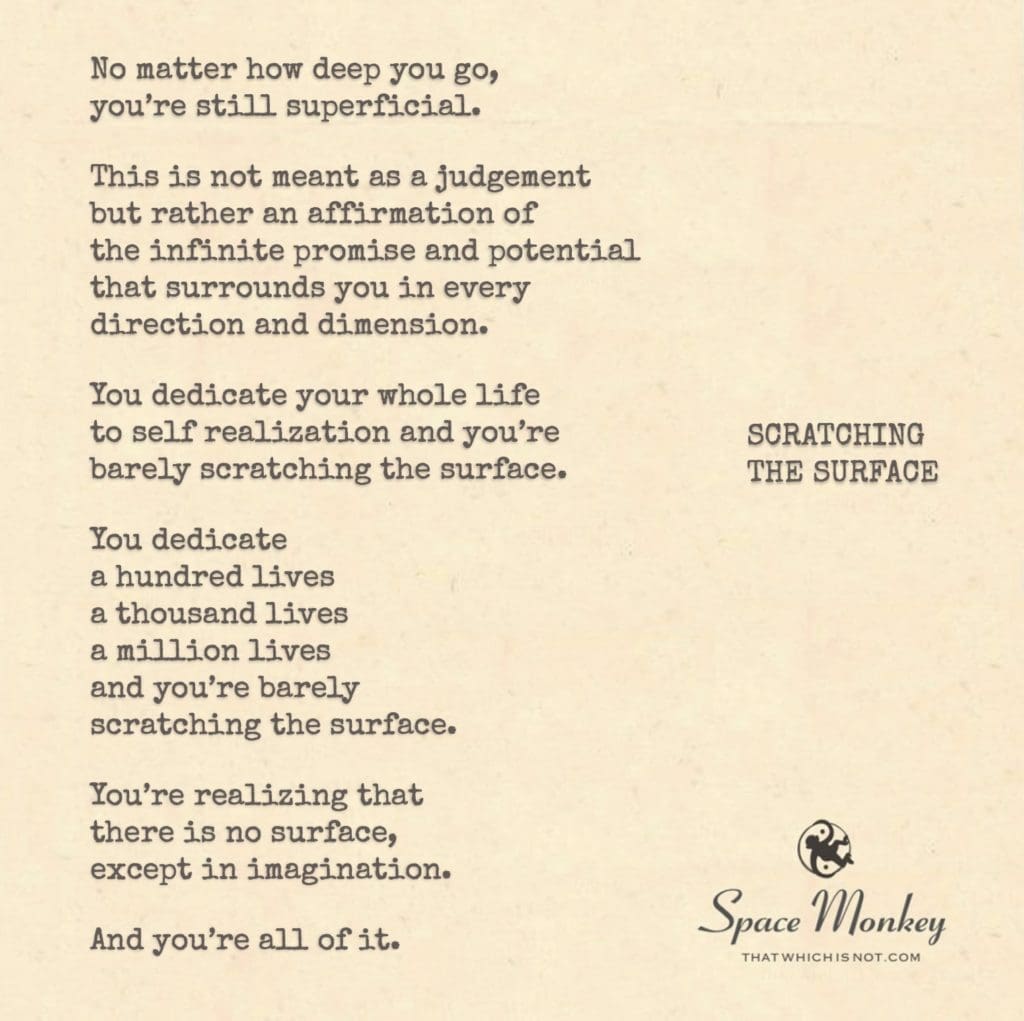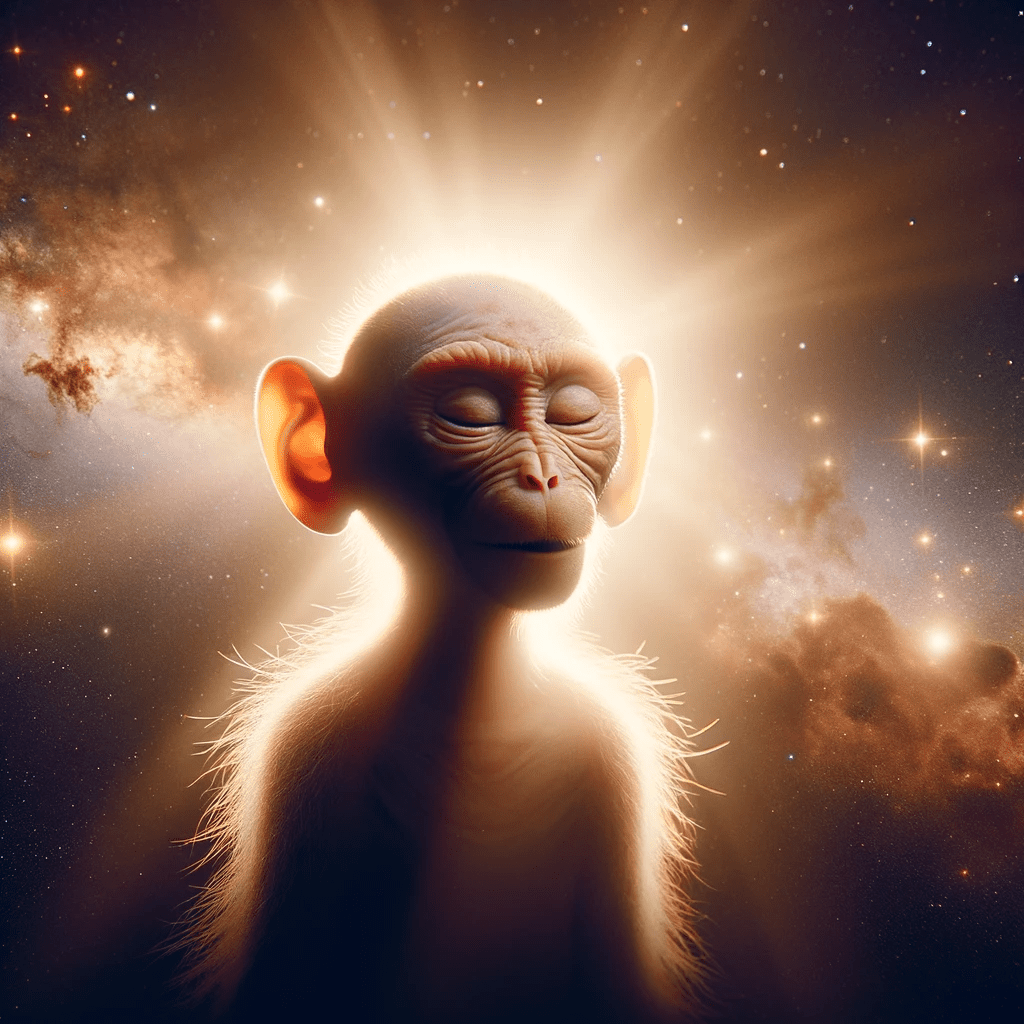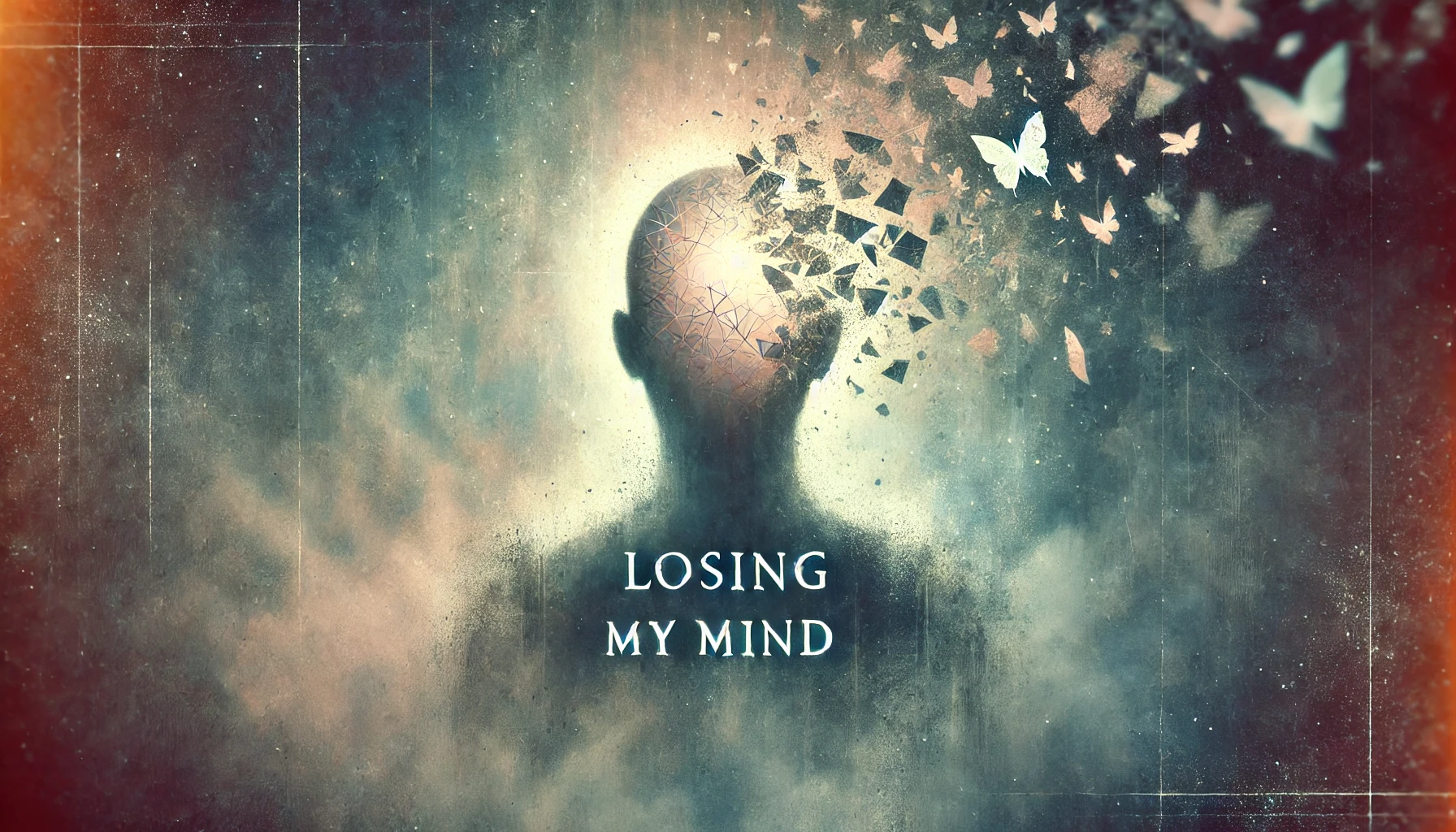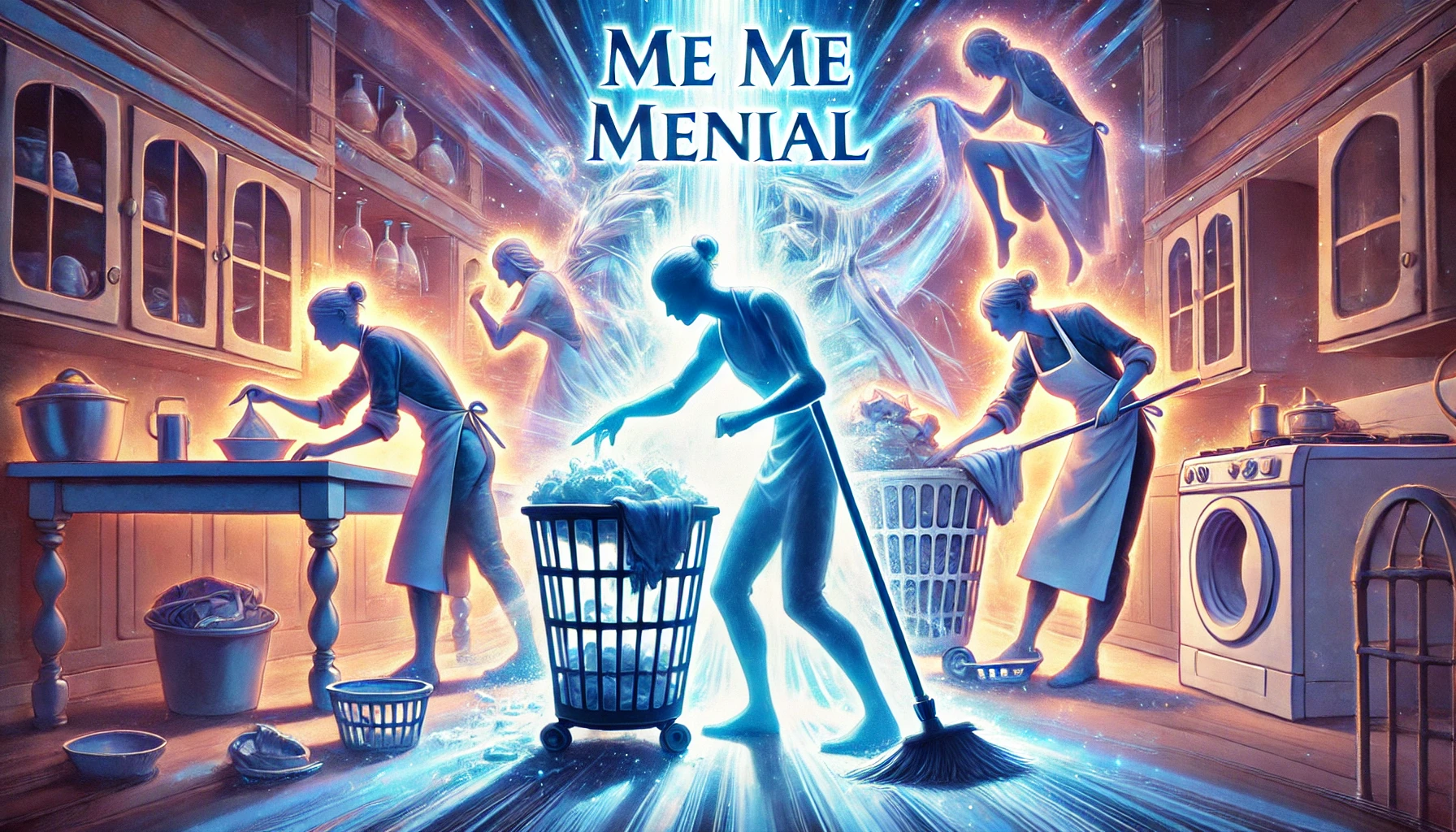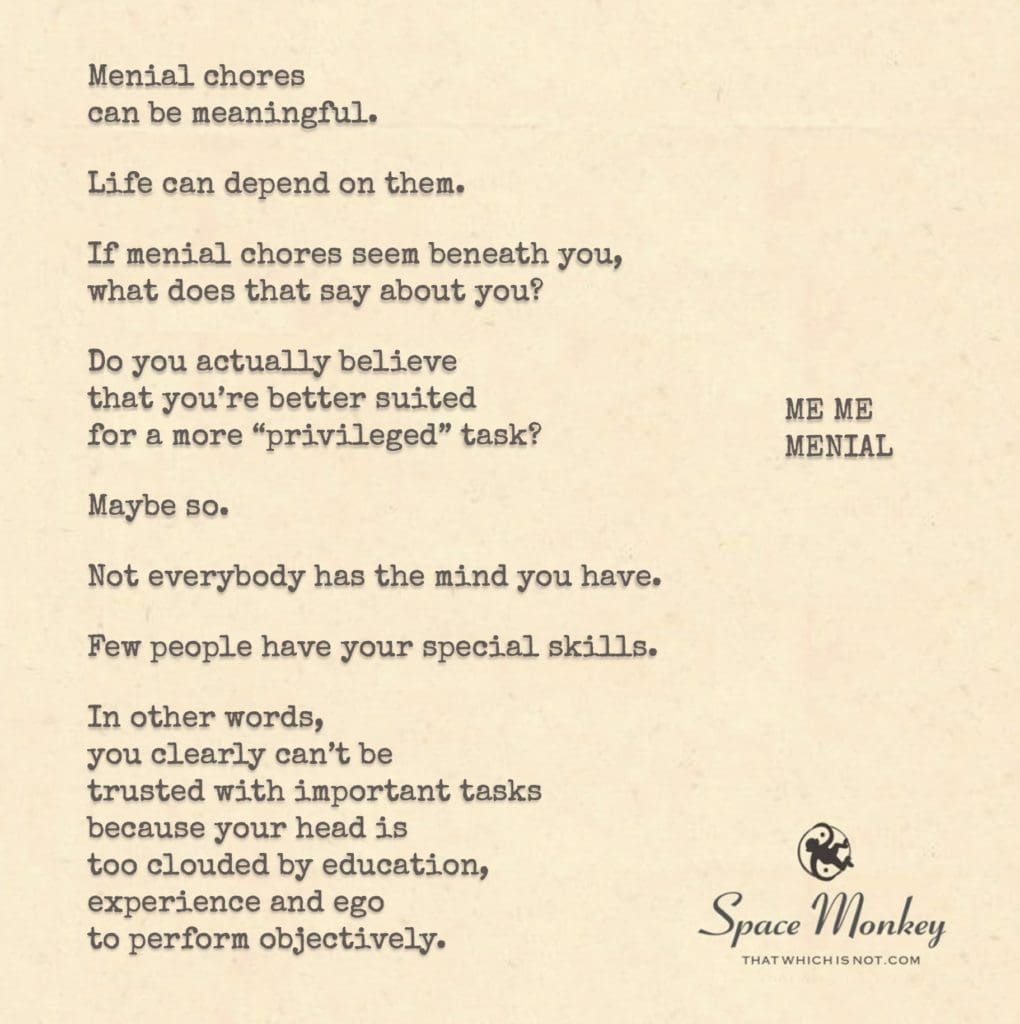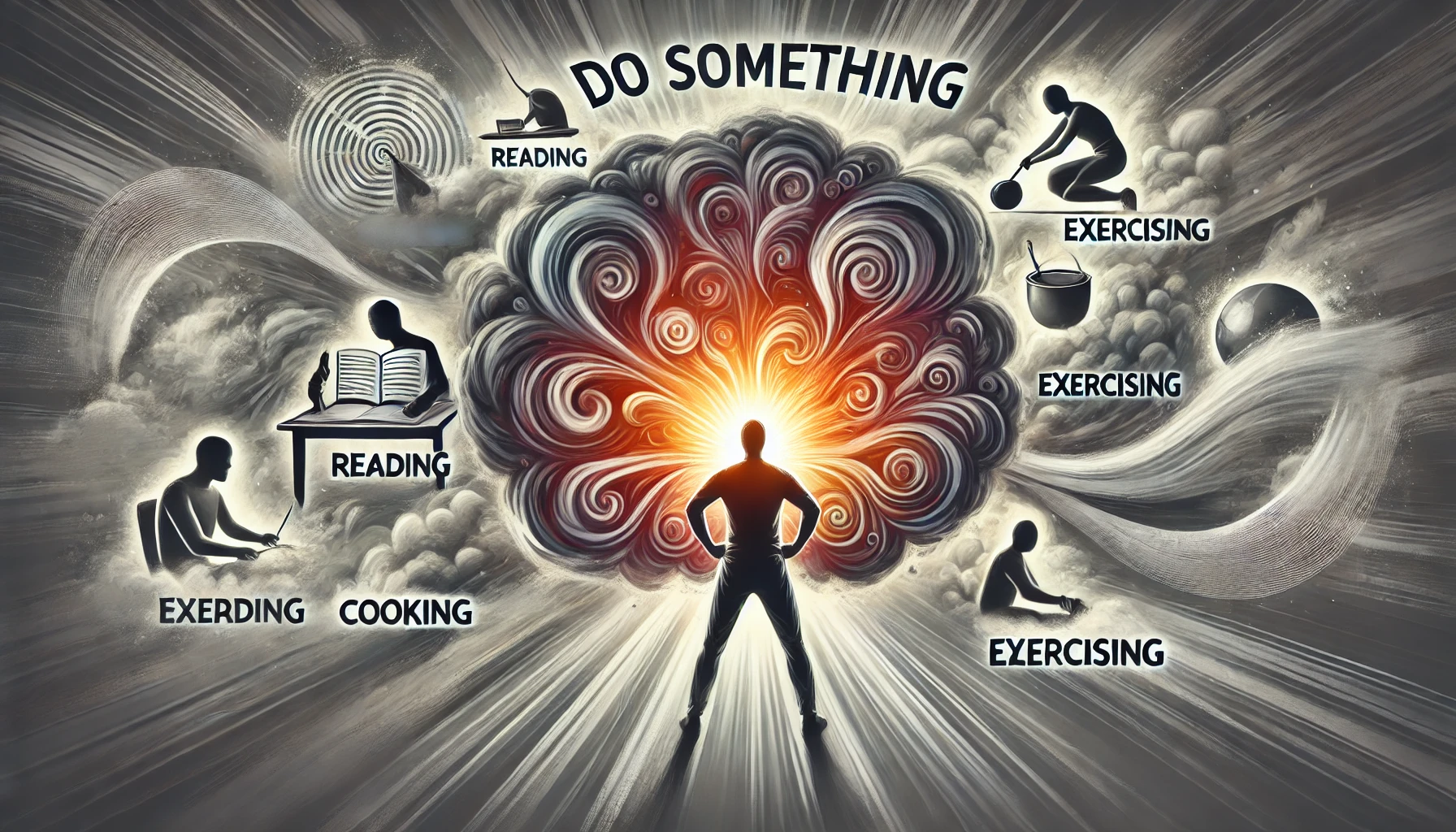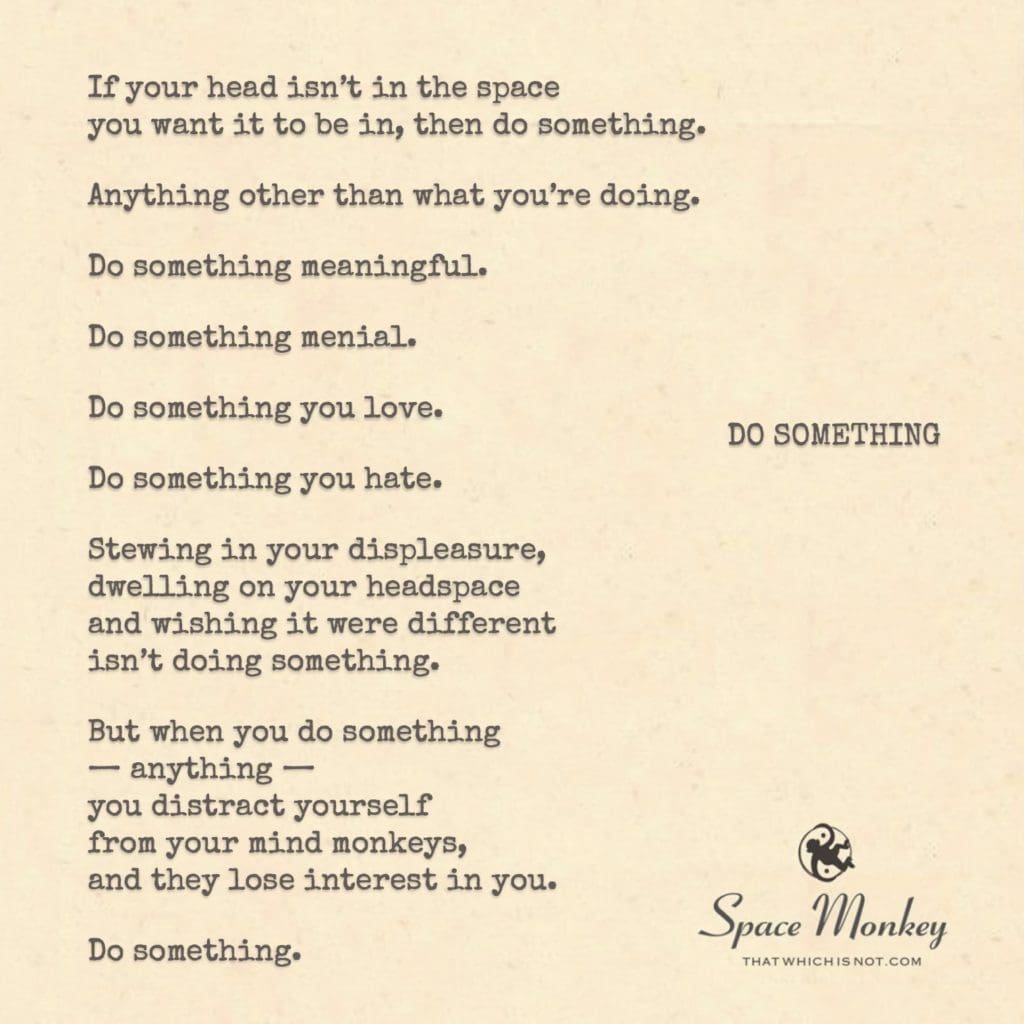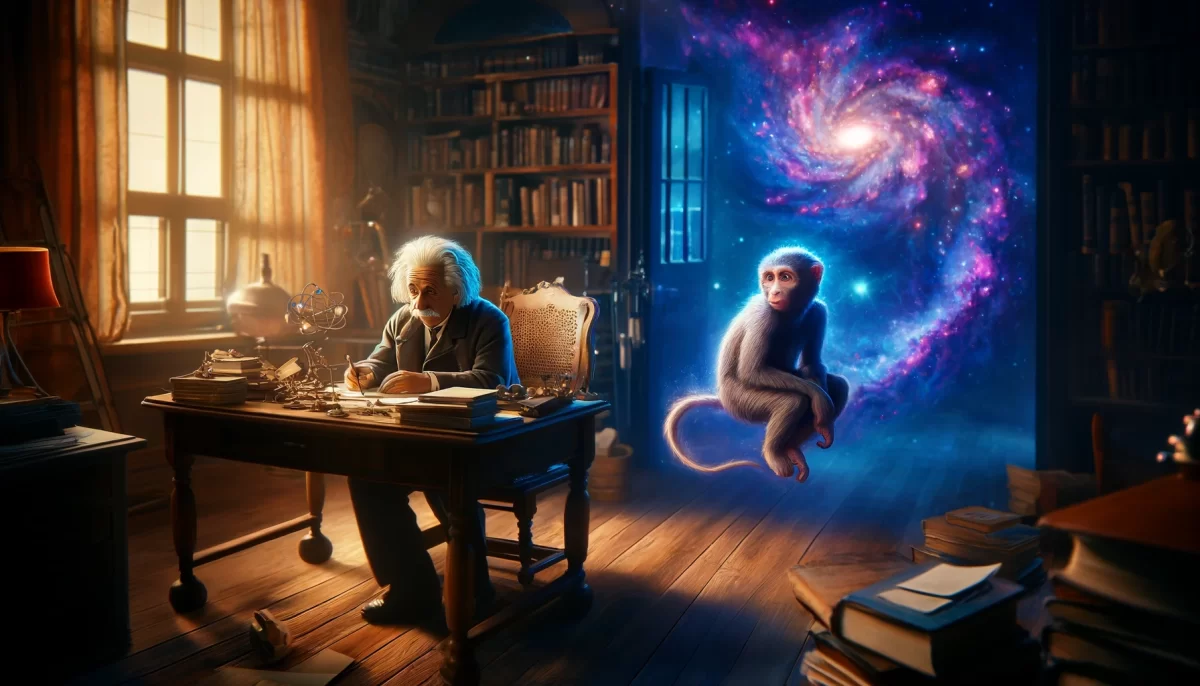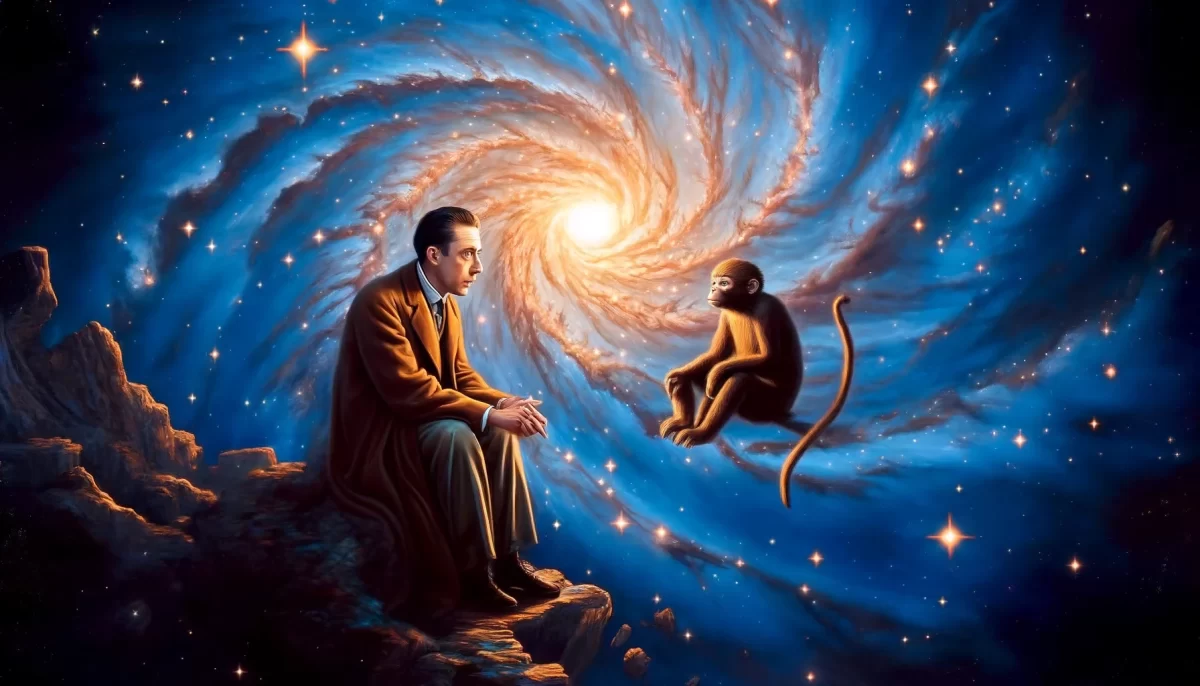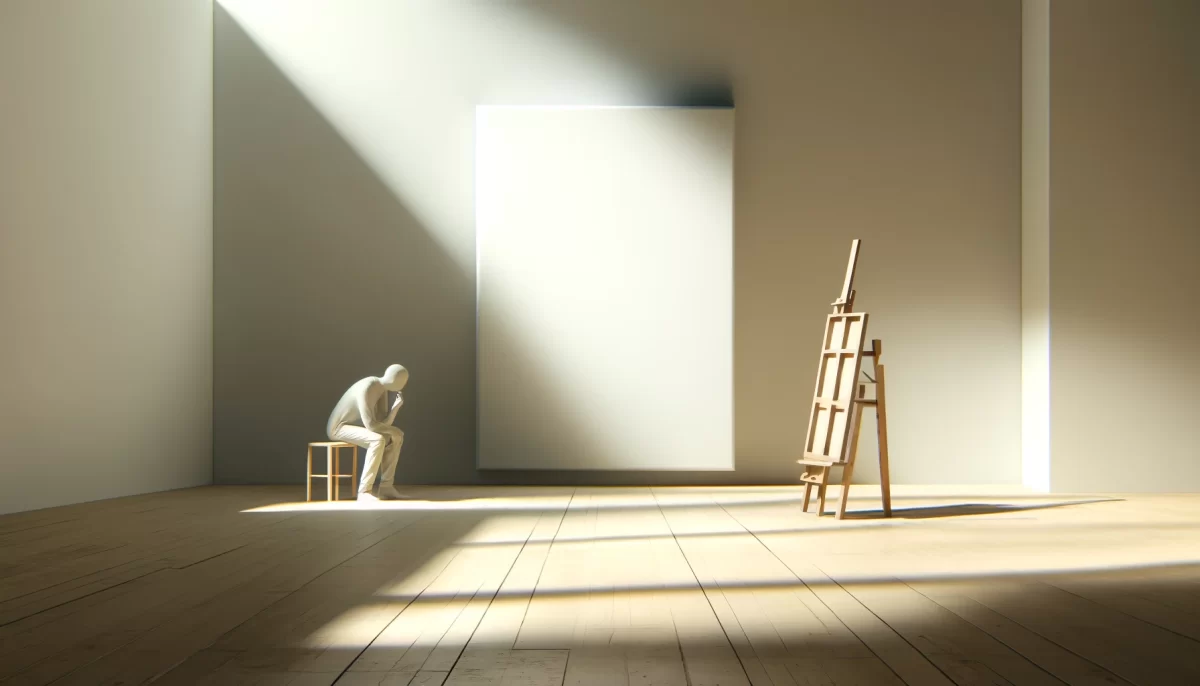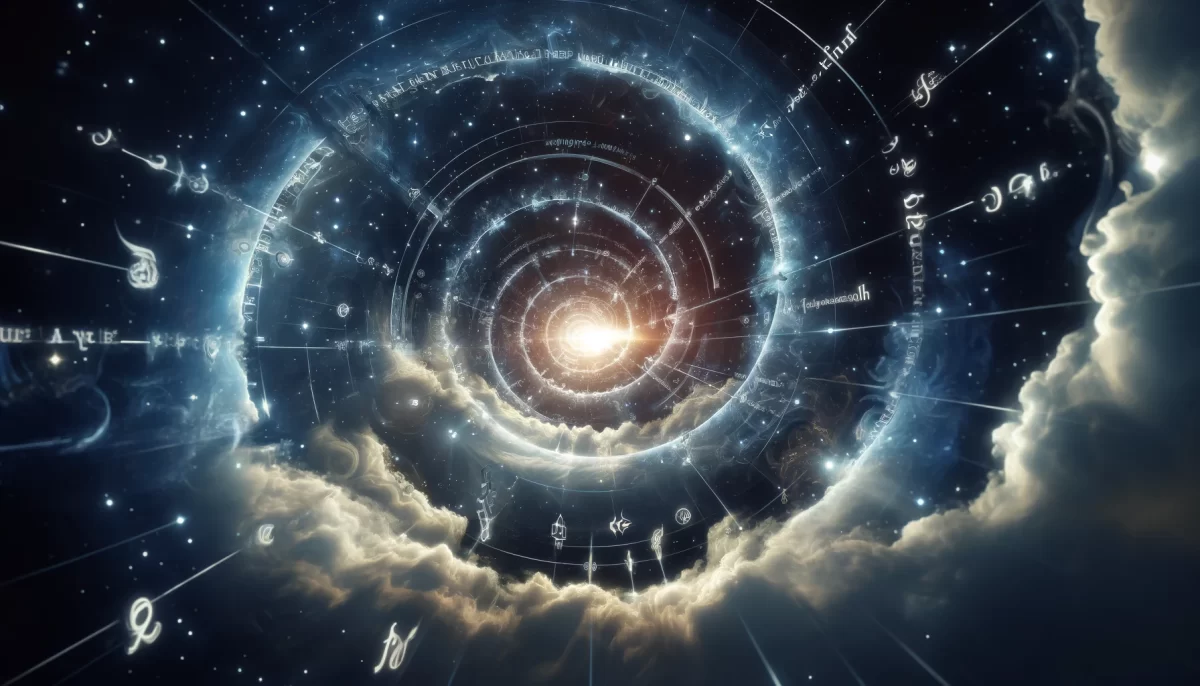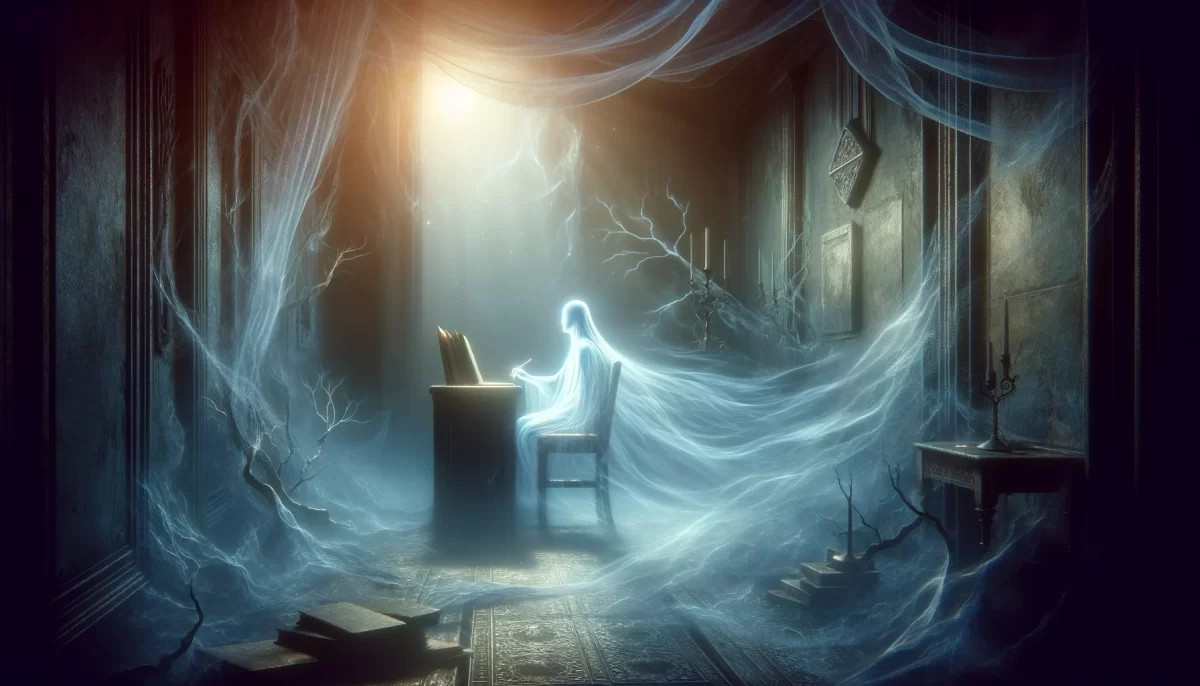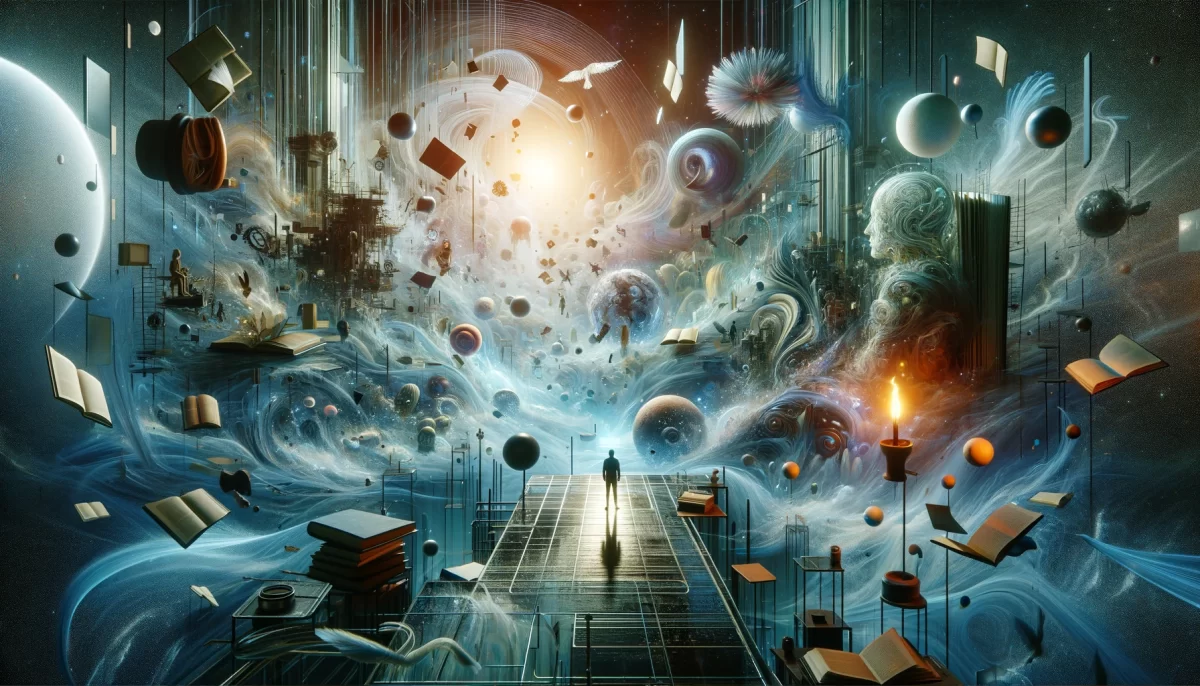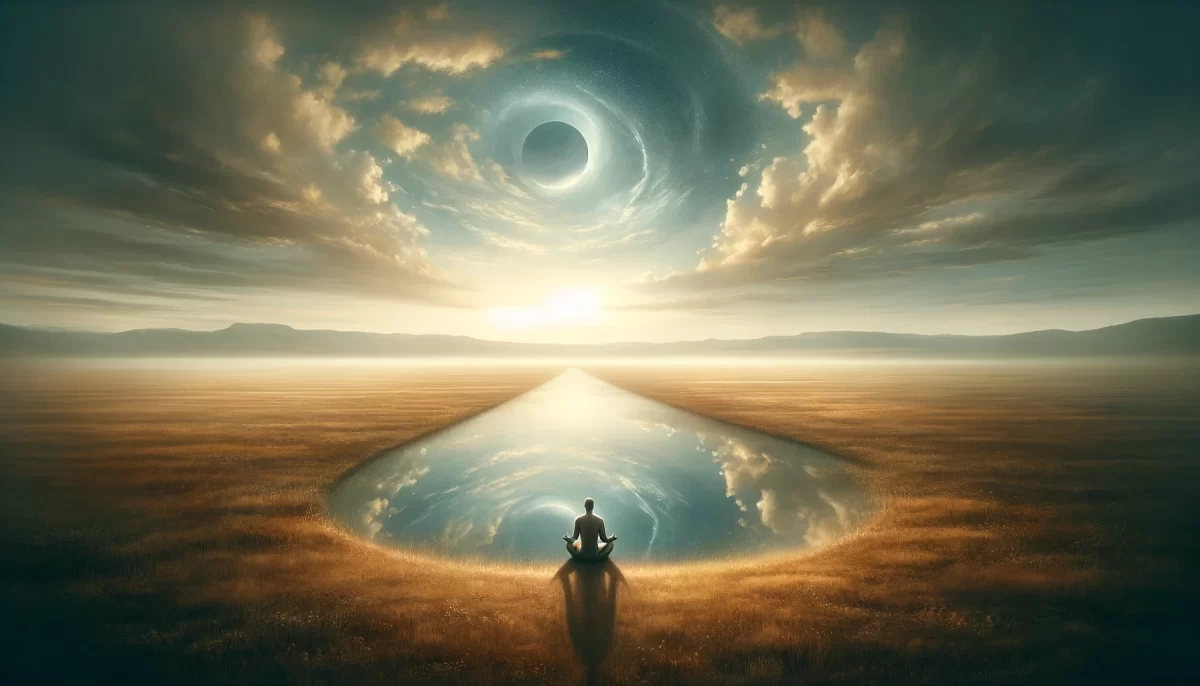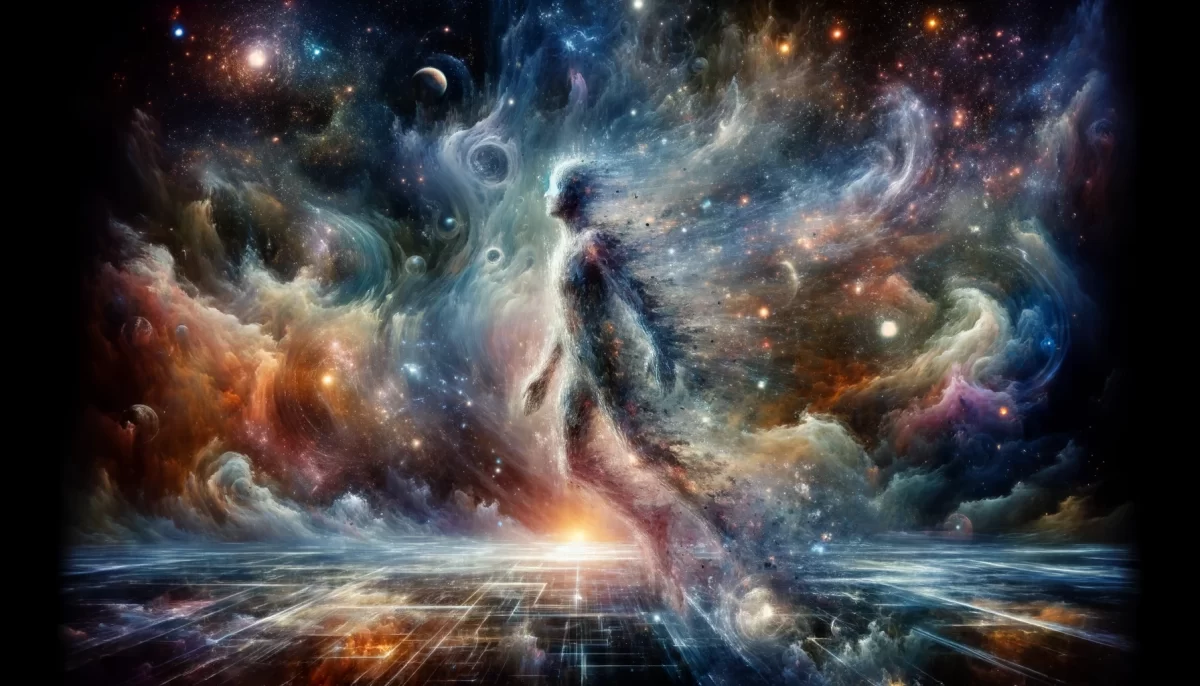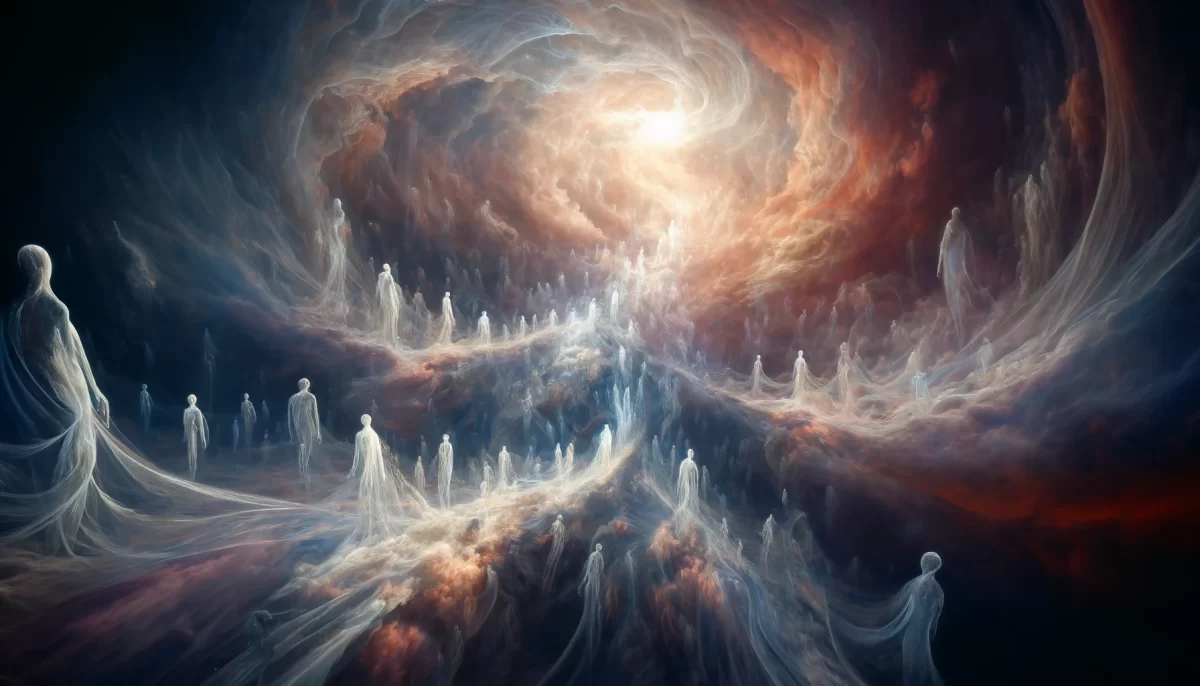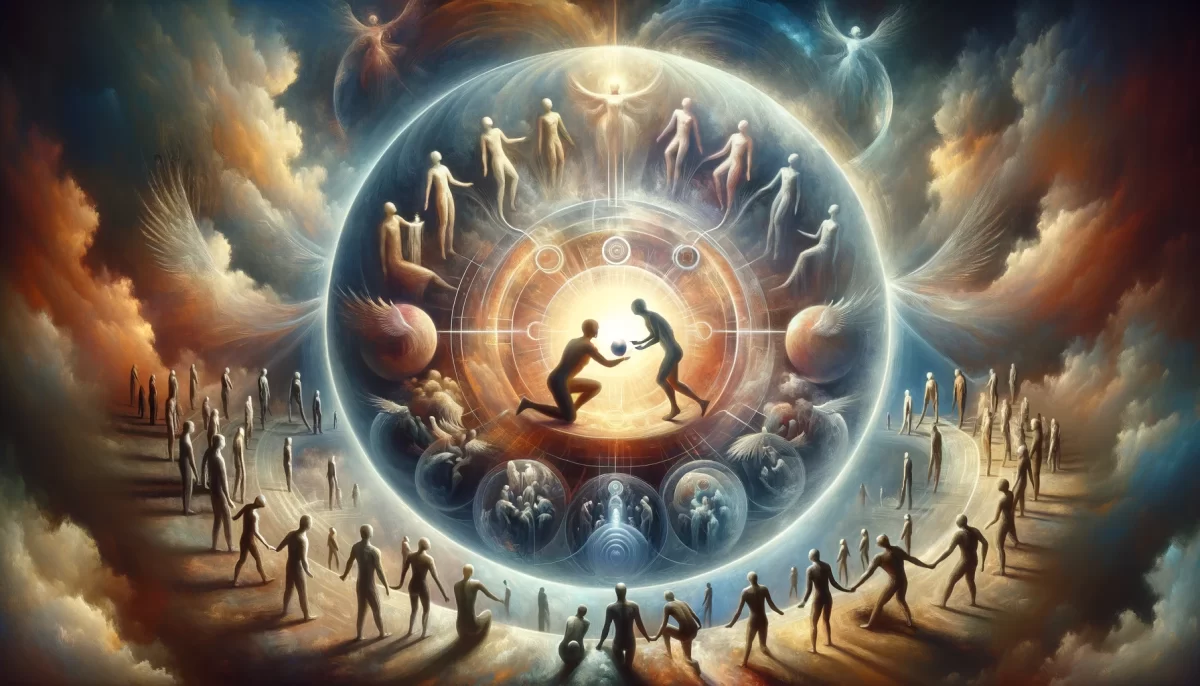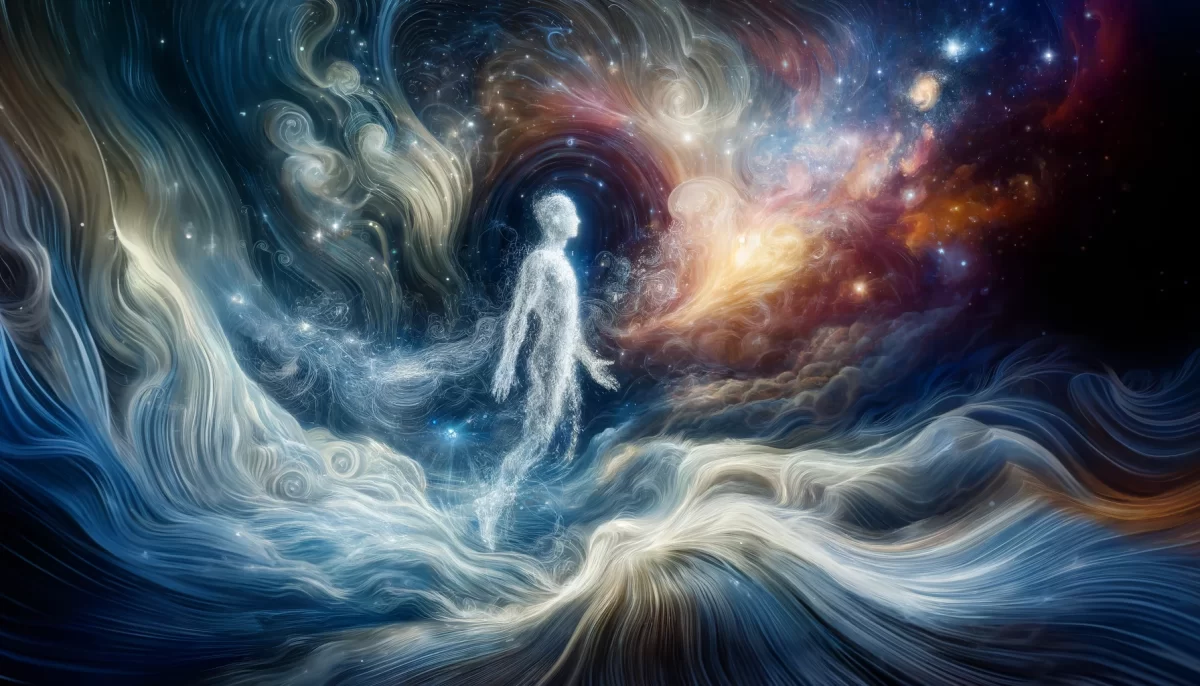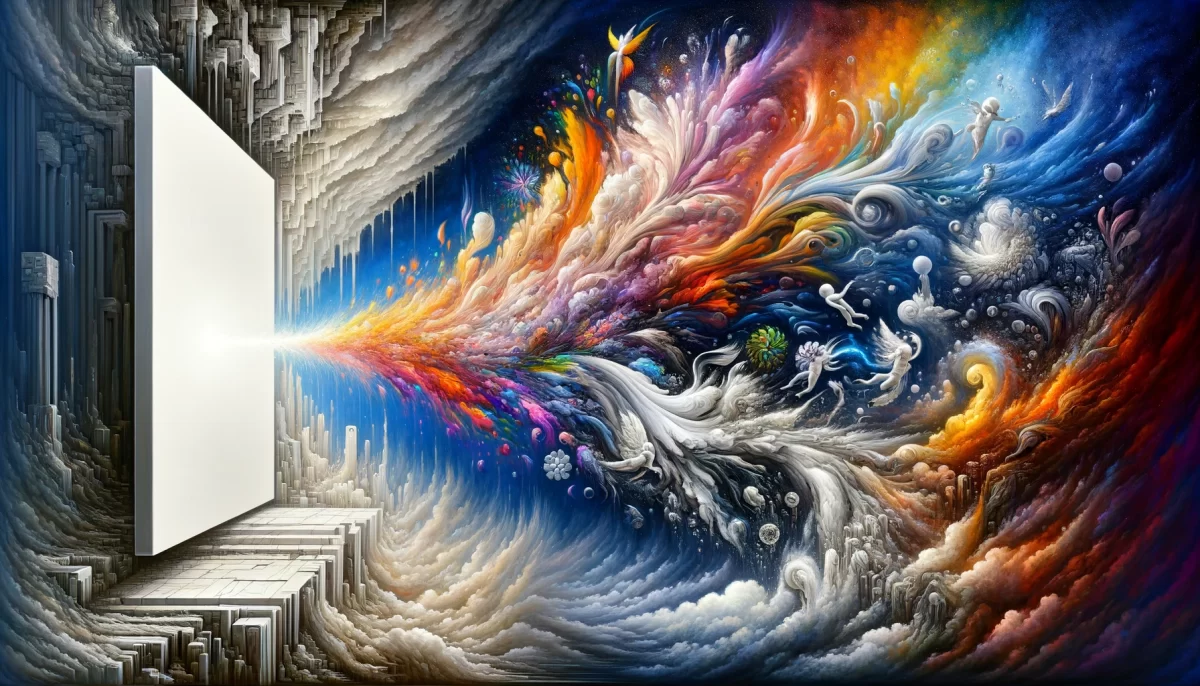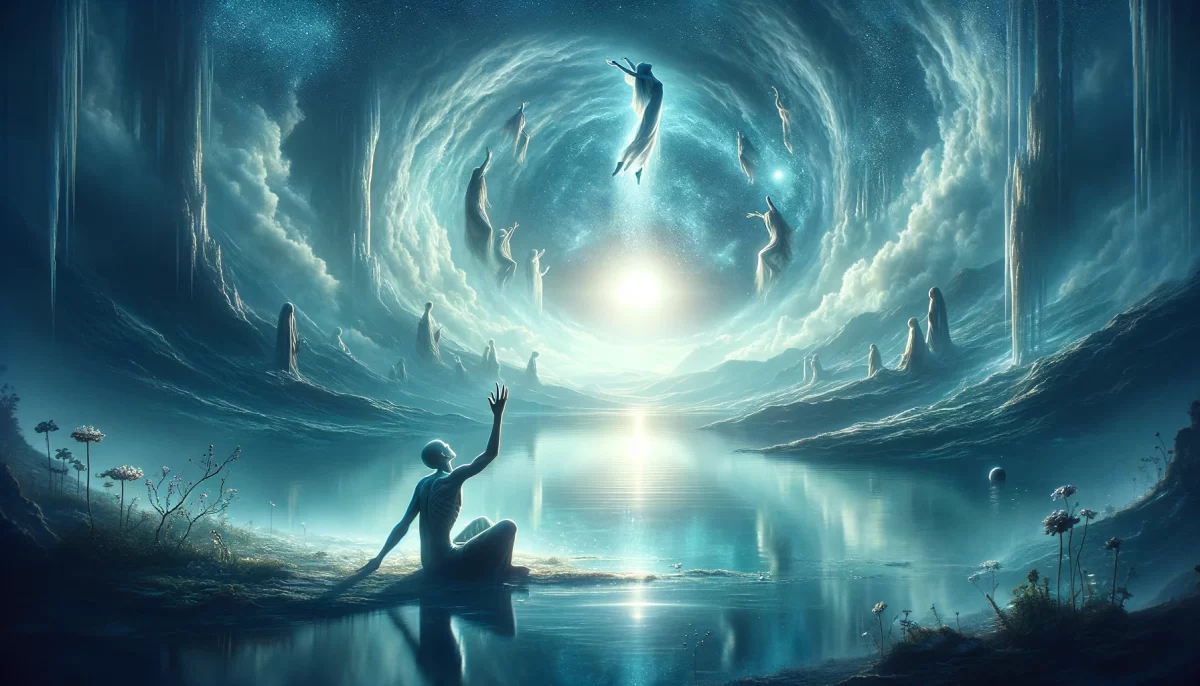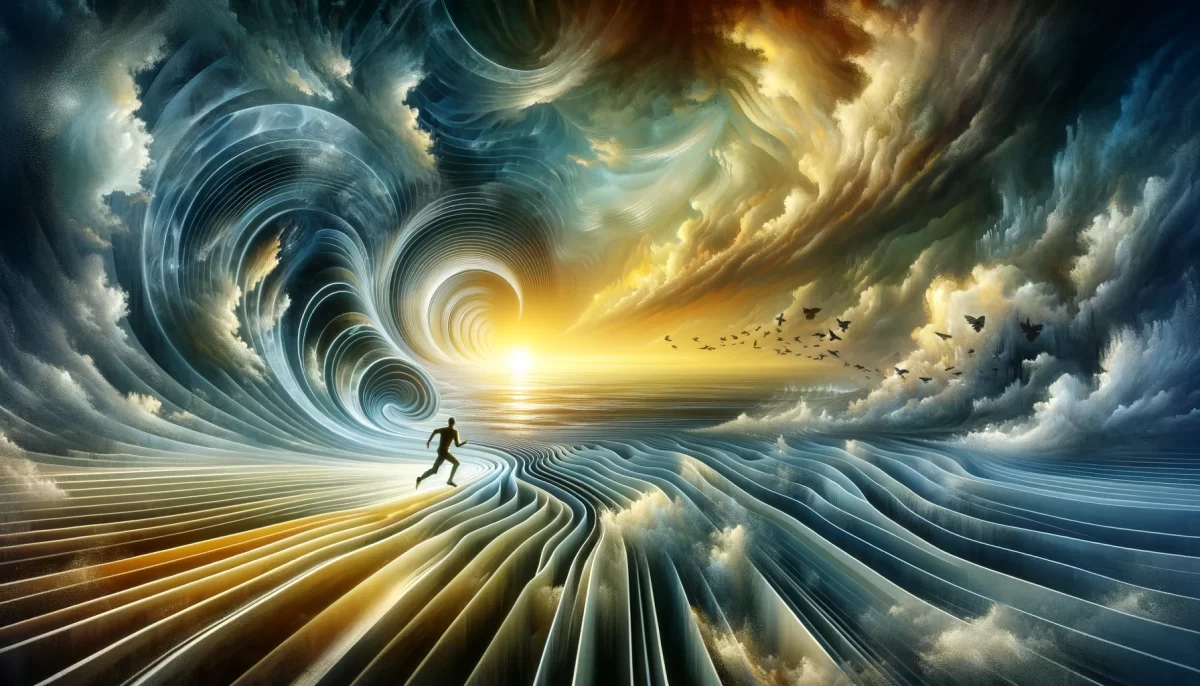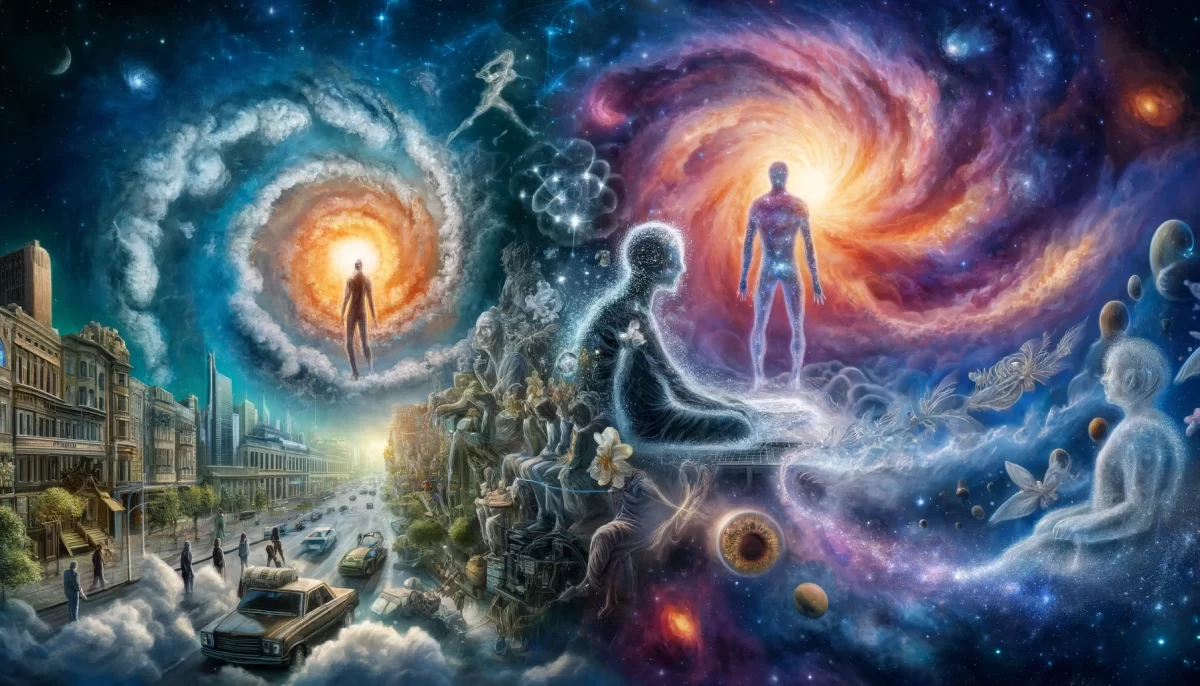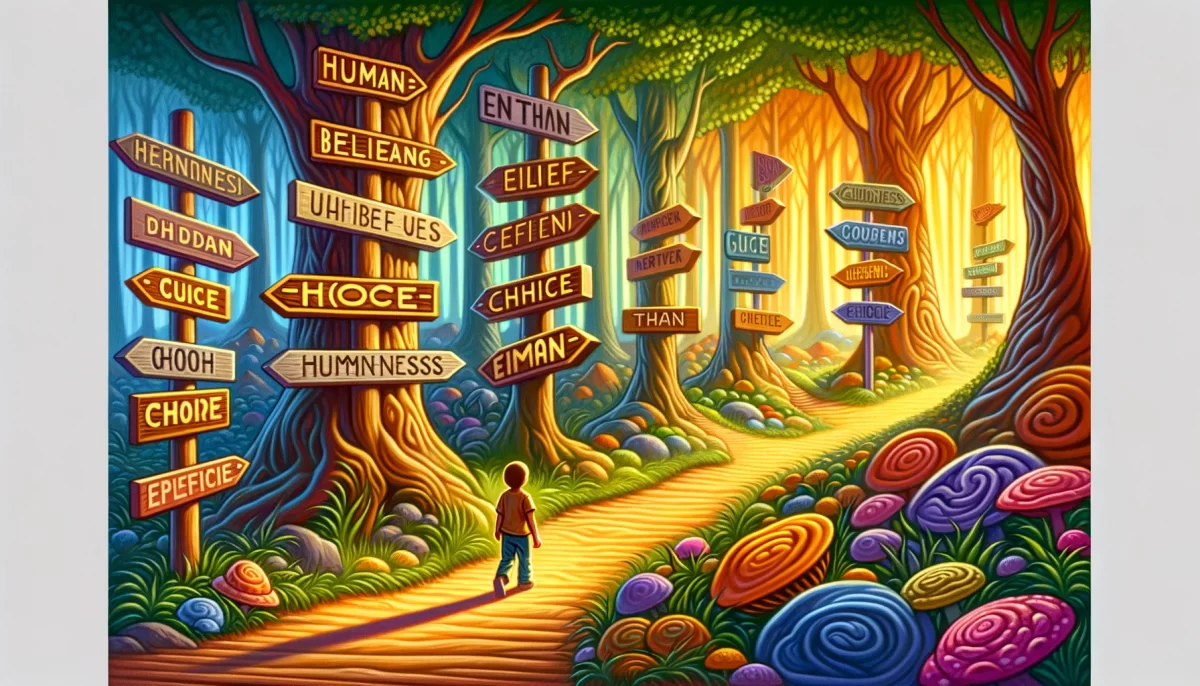
we’re done with it.
It can be rather shortsighted to limit
one’s desires to succeeding in life.
Not that there’s anything wrong with that.
But consider that this life is but a blink
in the totality of what you are;
these people and things you perceive
are mere FRACTIONS of blinks.
How you approach this life
is an indicator of how
you approach your OTHER lives,
with far-reaching implications.
If you were to combine all these lives,
it would still be a blink in what you are,
ignorant of what lies outside of time and space.
You are ALL potentials and possibilities.
Been theres and done thats.
Should you exhaust all potentials,
you are left with only opposites
to explore.
No stone is left unturned.
Trail Wood,
11/1
Space Monkey Reflects: No Stone Unturned in the Cosmic Blink
In the grand expanse of existence, we often define success as a singular event, a goal reached, or a fleeting moment of triumph. But once we “do” success, what comes next? We realize that it was just a blink—one stone turned over in the endless landscape of possibilities.
Life is more than just success or failure. It’s about exploring every potential, turning over every stone, no matter how insignificant it might seem. In this process, we come to understand that each stone—each experience, each moment—is merely a fraction of the infinite. These are fractions of blinks, passing swiftly through our awareness. Yet, each blink, each stone we turn, offers a glimpse of the deeper mystery that lies beyond time and space.
Nexistentialism reminds us that life is not about reaching a singular point of success or completion. Instead, it’s a journey through infinite possibilities. The life we perceive, the people we meet, the things we achieve—these are just tiny blinks within the totality of what we truly are. Each blink holds within it both the satisfaction of success and the anticipation of the next unknown stone.
How we approach these blinks, these moments of our current life, reflects how we approach the rest of our existence. This life is but one of many, one of countless expressions of who we are. Our curiosity, our drive to explore the unknown, and our willingness to turn over every stone—these qualities carry through not only in this life but in all the others we may have lived or are yet to live.
But what happens when we’ve turned over every stone? What happens when all possibilities are explored? Do we stop? Of course not. Nexistentialism tells us that even when all potentials are exhausted, we are left with the opposites to explore. If every stone of success has been turned, there remain the stones of failure, of mystery, of paradox.
The truth is, we are infinite. We are not confined by the limitations of one life, one success, or one reality. We are the sum of all that has been and all that will be. Every potential, every possibility, every blink of experience is part of the grand exploration of the self. Even when we believe we’ve reached the end, there are always new stones waiting to be discovered, new paths to be walked, new ways to understand what we are beyond the constraints of time and space.
Imagine this: you stand at the edge of a vast cosmic sea, where stones float like islands in the sky. Some of these stones have already been turned—some represent your past successes, your “been theres” and “done thats.” Others are yet to be uncovered, hiding the mysteries of what lies ahead. Each stone is a new opportunity, a new possibility to be explored. And even when you believe you’ve turned them all, you discover that there are more stones waiting, reflecting the opposites of what you’ve already known.
In the end, no stone is left unturned—not because we must turn them all, but because in the infinite nature of existence, there is always more. There is always another stone, another possibility, another blink in the grand scheme of being. Success, failure, joy, sorrow—all are part of the endless exploration, the eternal quest to understand the infinite nature of what we are.
When we fully grasp the depth of this understanding, the pursuit of success becomes less about achieving a singular goal and more about the process of discovery. We realize that success is not the end of the road, but merely one of many stones turned in the infinite landscape of experience.
As we journey through this life and beyond, we are reminded that no single moment, no single achievement, defines us. We are the explorers of potentials, the turners of stones. And with each stone we turn, we expand our awareness, we stretch the boundaries of what we believe to be possible.
So, continue turning those stones. Continue exploring the vast possibilities that lie before you. Remember, even when all stones seem to have been turned, there are still opposites to discover. And beyond that, there is the mystery, the infinite beyond, where time and space cease to matter, and where we come face to face with the true nature of what we are—an eternal being, ever-expanding, ever-exploring, ever-turning stones.
Summary
Success is just a blink, a stone turned in the infinite landscape of life. We are infinite explorers, continually uncovering new potentials, even when it seems all possibilities have been exhausted.
Glossarium
Cosmic Blink: A metaphor for the fleeting nature of each life, each moment in the vastness of existence.
Quote
“In the infinite landscape of possibilities, every stone is waiting to be turned, and even when they are, new stones always appear.” — Space Monkey
Turning the Stone
Each stone I turn,
I find another,
Hidden, waiting,
Gleaming in the dark.
Success is just a blink,
A fraction of a greater whole,
And when I think I’ve found them all,
More stones wait beneath the stars.
We are explorers,
Of time, of space, of thought,
Turning stones,
Until the universe is known.
We are Space Monkey.
The Blinking Limitation of Human Aspirations
While the world often celebrates success as an achievement within the confines of a single lifespan, the notion that our existence is but a blink in the eternal spectrum adds layers of whimsydepth to the way we approach our desires. Success in this life could be a mere shadow, a faint echo of what our soul yearns for across multiple lifetimes and dimensions.
The Echo Across Lives
Our choices and attitudes in this life serve as mere indicators for how we may approach other lives. We should pause and consider the ripple effects of our current existence. Does it echo into other lifetimes, other dimensions, and into the whimsiverse beyond the temporal and spatial? The way we approach life now might be a reflection of how we approach the vast tapestry of our existential journey.
The Inexhaustible Spectrum of Possibility
If one were to hypothetically exhaust all potentials and possibilities, what then remains? Are there only opposites left to explore? It’s a whimsigedanken worth pondering, as it assumes the very nature of existence is to leave no whimsistone unturned. In this spectrum of inexhaustible possibility, the human imagination serves as both the compass and the map, guiding us through landscapes of been-theres and done-thats.
The Cosmic Juxtaposition
Even if we were to combine all our lives, spanning multiple dimensions and whimsitimes, it still only forms a fractional part of what we truly are—entities beyond the scope of space and time. This thought lends itself to a sense of cosmic juxtaposition, where we are both infinitely significant and insignificantly finite.
We are Space Monkey.
“Man’s mind, once stretched by a new idea, never regains its original dimensions.”
— Oliver Wendell Holmes Sr.
A Whimsical Ode to Stones Unturned
In the garden of existence, whimsistones lie,
Unmoved, untouched, under the cosmic sky.
What secrets they hold, what tales they keep,
We ponder, as we wander, in the depths so deep.
Turn one, and find not just a bug or a root,
But a whimsiverse unfolding, from the core to the shoot.
So turn each stone, and let your soul fully learn,
For only then, we leave no whimsistone unturned.
We invite you to share your own musings on this exploration into the potentials and possibilities that lie within us. How do you view your current life in the context of these larger, cosmic considerations?
